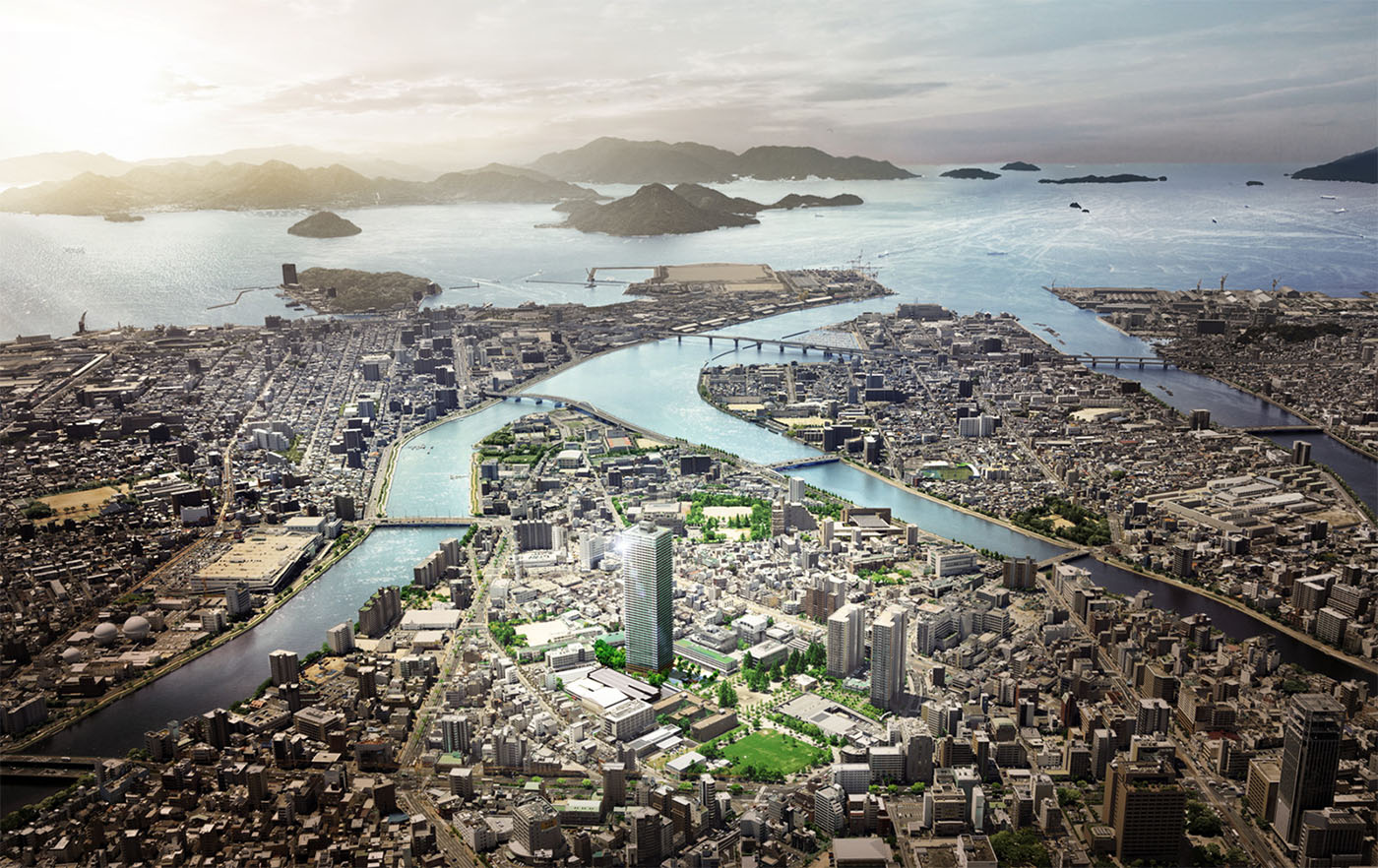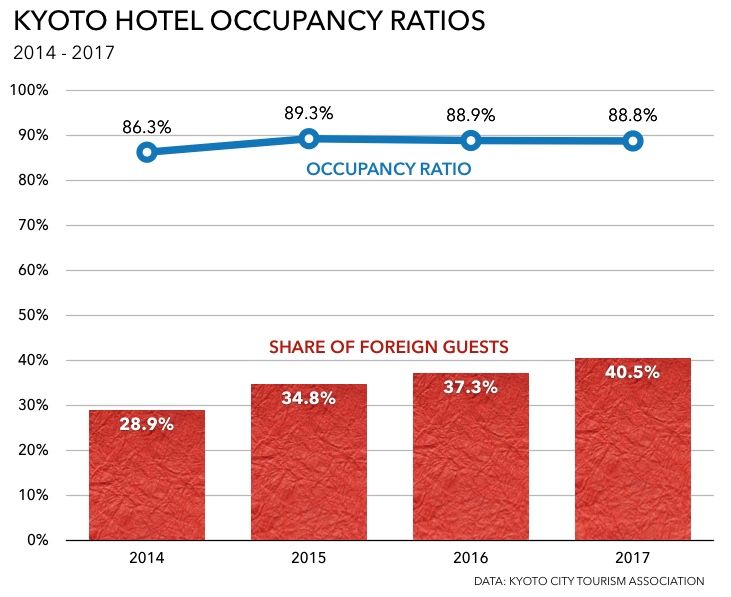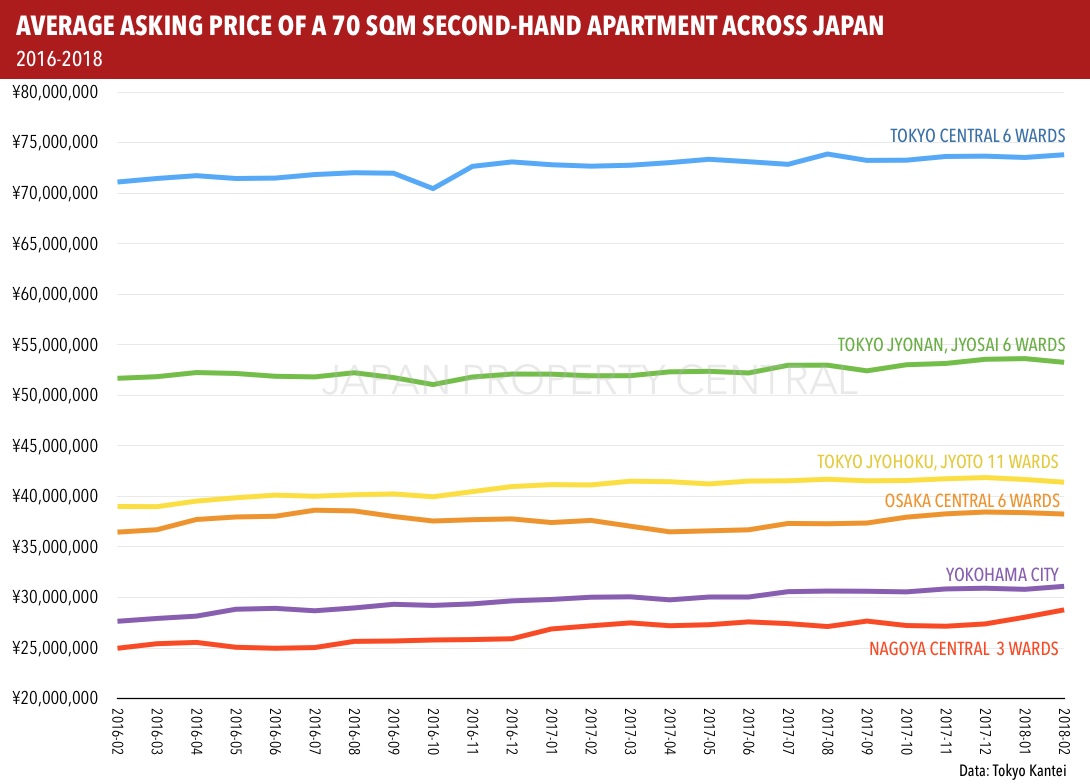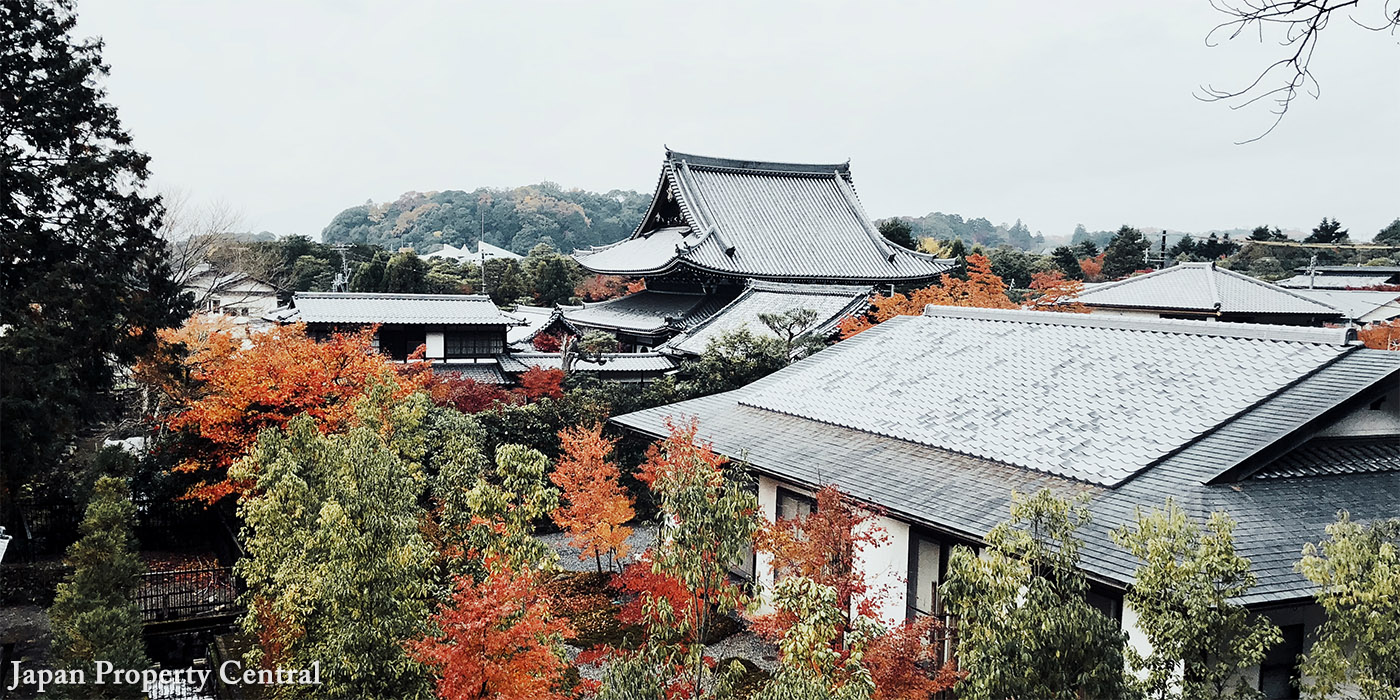53-storey condominium tower for Hiroshima
April 2, 2018Japan real estate,japan real estate market,Hiroshima,Japan Real Estate NewsNew Construction,Real Estate News,All

A 53-storey, 178m tall condominium is planned for downtown Hiroshima with completion scheduled for April 2020. This will be the tallest condominium based on total floor count to have been built across the Chugoku, Shikoku and Kyushu region since 1994.
‘hitoto Hiroshima The Tower’ is a 665-unit high-rise with 2 ~ 4 Bedroom apartments ranging in size from 55 ~ 143 sqm (592 ~ 1,539 sq.ft). A 80 sqm apartment on the 18th floor is expected to be priced in the 50 million Yen range (approx. 470,000 USD). Sales are scheduled to begin in mid-April 2018.Read more
Foreign tourists now make up 40% of hotel guests in Kyoto
March 30, 2018Japan Hotel NewsReal Estate News,Market Information,All,Hotel News,Kyoto

A survey of 36 leading hotels in Kyoto has found that the percentage of foreign guests has exceeded 40% for the first time since reporting began in 2014. According to the Kyoto City Tourism Association, the share of foreign guests in 2017 was 40.5%, up 3.2 points from 2016. The busiest season for foreign tourists was April, with a share of 50.9%, up 5.3 points from the previous year.
The hotels reported an occupancy ratio of 88.8%, down 0.1 points from 2016. January, which is typically the worst month for tourism, had an occupancy ratio of 75.7%, up 4.3 points from 2016.Read more
Commercial land prices in Japan’s regional areas increase for first time in 26 years
March 29, 2018Land,Real Estate News,Market Information,All,Tokyo

On March 27, the Ministry of Land, Infrastructure, Transport and Tourism (MLIT) released the Chika-Koji assessed land prices for 2018. According to the data, nationwide land prices across all uses increased by 0.7%, a 0.3 point improvement from 2017 and the third year in a row to record a year-on-year increase.Commercial land prices increased for the third year in a row with a 1.9% increase in 2018. Residential land prices increased by 0.3% in 2018. In 2017, residential land prices increased by 0.022%, showing the first increase in 9 years.
Notably, commercial land prices in Japan’s regional areas increased by 0.5% - the first increase since 1992. Residential land prices in regional areas dropped by 0.1%, although the rate of decline has reduced.
The most expensive land in Japan is the site of the Yamano Music Building in Ginza, Tokyo. The land had an assessed value of 55,500,000 Yen/sqm (approx. 48,800 USD/sq.ft) in 2018, up 9.9% from 2017 and the fifth year in a row to record an increase. This land has increased in value by 275% since 2002.Read more
Japan's apartment living ratios in 2017
March 28, 2018Market Information,All,Tokyo,Kyoto
Tokyo Kantei has issued their annual report ranking the cities and towns across Japan that have the highest percentage of condominium-type apartments as a share of total households. According to the data, 12.41% of households in Japan were living in apartments in 2017, up 0.10 points from 2016.
In the Tokyo metropolitan area, the ratio was 27.20% - the highest in the country. Kanagawa Prefecture was in second place with 22.68%.Read more
New apartments for sale in Tokyo in 2018
March 27, 2018Japan real estate,japan real estate market,tokyo real estate,Tokyo real estate marketNew Construction,All,Tokyo
Let's take a look at some of the new condominiums that will be completed in central Tokyo this year.
JANUARY
GRAND HILLS MOTOAZABU
Size: 75 ~ 156 sqm (816 ~ 1,681 sq.ft)
Pricing: 175 ~ 850 million Yen
Located in a hilltop position atop the Motoazabu district The 5-storey building has 32 spaciously-sized apartments and is 300 meters from the Azabu Juban restaurant street and 800 meters from Roppongi Hills. Prices range from 2,300,000 ~ 5,500,000 Yen/sqm.Read more
Apartment asking prices in Tokyo in February 2018
March 26, 2018Japan real estate,japan real estate market,tokyo real estate,Tokyo apartment prices,Tokyo real estate market,Japan Real Estate NewsReal Estate News,Market Information,All,Osaka,Nagoya,Tokyo

According to Tokyo Kantei, the average asking price of a 70 sqm (753 sq.ft) apartment across greater Tokyo was 35,980,000 Yen in February 2018, showing no change from the previous month but up 0.4% from last year. The average building age was 23.4 years.Read more
Kyoto approves minpaku rule requiring host to be within 10 minute radius of property
March 23, 2018Kyoto,Kyoto Real Estate Market,minpaku,Kyoto Real EstateReal Estate News,All,Laws and Lawsuits,Kyoto

On February 23, Kyoto City approved a local ordinance that will impose strict rules on hosts of unlicensed short-term ‘minpaku’ accommodation.
For properties located in exclusive residential zones, hosts can only provide accommodation for a maximum of 60 days per year and only during the off-season winter months from January 15 to March 15. Both traditional machiya townhouses and properties where the host also lives on the premises may be exempt if certain requirements are met.Read more

